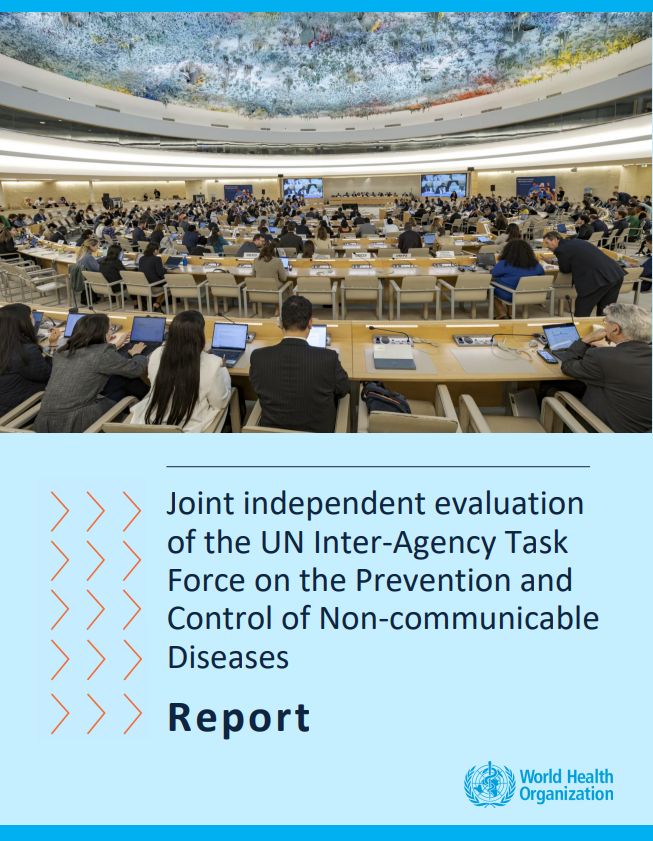A recently released independent report on the Task Force describes it as ‘an effective coordination mechanism and an exemplar of the UN working as one’, with the report highlighting its ‘high demand from both Member States and UN agencies’.
At the global level, the evaluation found that the Task Force ‘contributes to building synergies among UN agencies on NCDs through working groups, joint programmes and the Health4Life Fund’ with the secretariat being ‘highly effective in convening Task Force members and coordinating its activities.’
I have been involved in many interagency coordinating bodies in my time with the UN, and the Task Force is among the very best and most effective. - UN agency focal point
The independent evaluation team analyzed over 100 documents, interviewed dozens of key informants, conducted detailed case studies in two countries, and surveyed Task Force focal points. The report provides ‘evidence of Task Force joint missions, investment cases and other activities contributing to improved multisectoral responses in various countries.’
‘Efforts to raise funds for country-level NCD and mental health responses—especially through the Health4Life Fund—are helping to ensure the long-term impact of the Task Force’s work’, the authors state.
The NCD mission was absolutely useful because for the first time the ministries and the agencies were streamlining their efforts. We tried to learn what was the vision and opinions of other ministries and agencies about NCDs, and actually we found out that some of them didn't even understand their role in the NCD response. So it was a great advocacy exercise. - Ministry of Health Official
The NCD investment case was very important for us. In 2019, we did not have evidence-based data on NCD burden–it was very difficult to convince the deputy minister of finance to invest in this. After the first NCD investment case the ministry of finances changed their view on prioritizing the burden of NCDs. - Government official
But the report also highlights that the Task Force requires greater political support and more stable resourcing and also needs to embed gender and equity in its work, as it has done for human rights.
The report also encourages the Task Force to strengthen further the monitoring and evaluation of its multisectoral coordination work. The report also calls for greater transparency around the resources individual agencies are making available for NCDs and mental health.
A short summary of the report sets out key findings, conclusions, lessons learnt and recommendations.
The Task Force secretariat and its members will shortly be publishing a public response to the evaluation.
The evaluation will provide important inputs into its 2026-2030 strategy and the 2026-2027 action plan. The Task Force will encourage Member State and others to support the development and implementation of its new strategy and action plan.
Read the summary brief
Read the full report
Read the annexes

